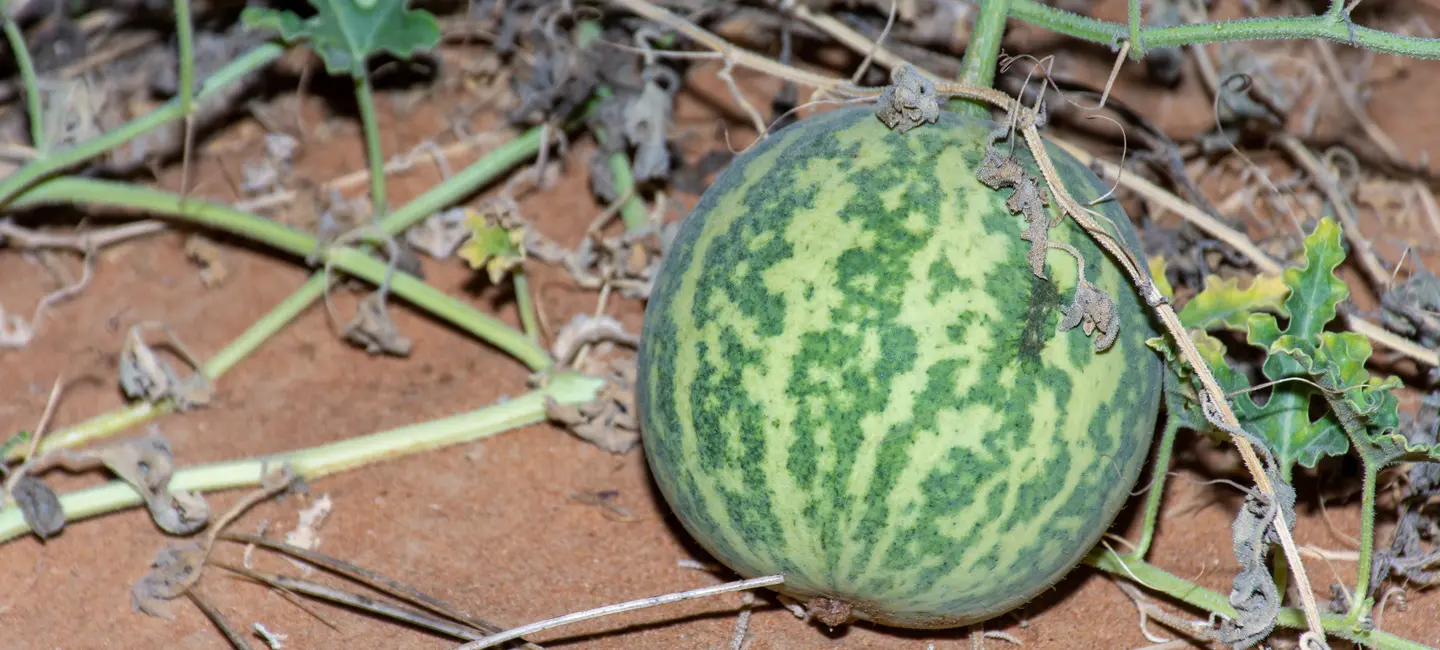
Colocynth (Citrullus colocynthis) is a plant that grows in East Asia. Its fruit looks like a small watermelon and contains chemicals that are unsafe.
Colocynth contains chemicals called cucurbitacins. These chemicals are very irritating to the stomach and intestines.
Despite serious safety concerns, people use colocynth for diabetes, high cholesterol, liver disease, and other conditions, but there is no good scientific evidence to support these uses.
Due to safety concerns, colocynth was banned by the US FDA in 1991.
Is It Effective?
There is interest in using colocynth for a number of purposes, but there isn't enough reliable information to say whether it might be helpful.
Is it Safe?
When taken by mouth: Colocynth is unsafe. Colocynth was banned by the US FDA in 1991. Taking even small amounts of colocynth can cause severe stomach irritation, leading to bloody diarrhea, kidney damage, and other serious side effects.
When applied to the skin: Colocynth extract is possibly safe when used in a dilution of sesame oil for up to 3 months.
Special Precautions & Warnings:
Pregnancy and breast-feeding: Colocynth is unsafe when taken by mouth while pregnant or breast-feeding. Avoid use.
Surgery: Colocynth might interfere with blood sugar control during and after surgery. Stop taking colocynth at least 2 weeks before a scheduled surgery.
Digoxin (Lanoxin)
Interaction Rating=Moderate Be cautious with this combination.
Colocynth is a type of laxative called a stimulant laxative. Stimulant laxatives can decrease potassium levels in the body. Low potassium levels can increase the risk of side effects of digoxin.
Medications for diabetes (Antidiabetes drugs)
Interaction Rating=Moderate Be cautious with this combination.
Colocynth might lower blood sugar levels. Taking colocynth along with diabetes medications might cause blood sugar to drop too low. Monitor your blood sugar closely.
Stimulant laxatives
Interaction Rating=Moderate Be cautious with this combination.
Colocynth can work as a laxative. Stimulant laxatives can cause diarrhea and decrease potassium levels. Taking colocynth with stimulant laxatives might cause more diarrhea and very low potassium levels.
Warfarin (Coumadin)
Interaction Rating=Moderate Be cautious with this combination.
Colocynth can work as a laxative and cause diarrhea. Diarrhea can increase the effects of warfarin and increase the risk of bleeding.
Water pills (Diuretic drugs)
Interaction Rating=Moderate Be cautious with this combination.
Colocynth is a laxative. Some laxatives can cause diarrhea and decrease potassium levels. "Water pills" can also decrease potassium levels. Taking colocynth along with "water pills" might make potassium levels drop too low.
Herbs and supplements that might lower blood sugar: Colocynth might lower blood sugar. Taking it with other supplements with similar effects might lower blood sugar too much. Examples of supplements with this effect include aloe, bitter melon, cassia cinnamon, chromium, and prickly pear cactus.
Horsetail: Taking horsetail with colocynth can cause the body to lose too much potassium.
Licorice: Taking licorice with colocynth can cause the body to lose too much potassium.
Stimulant laxative herbs: Colocynth is a type of laxative called a stimulant laxative. Stimulant laxatives can cause diarrhea and decrease potassium levels. Taking colocynth with other supplements with similar effects might cause more diarrhea and very low potassium levels. Examples of supplements with this effect include aloe, alder buckthorn, gossypol, rhubarb, and senna.
There are no known interactions with foods.
Colocynth fruit extract, diluted in sesame oil, has been applied to the skin by adults twice daily for up to 3 months. But colocynth is unsafe when taken by mouth. It can cause severe side effects and is banned by the US FDA.
Information on this website is for informational use only and is not intended to replace professional medical advice, diagnosis, or treatment. While evidence-based, it is not guaranteed to be error-free and is not intended to meet any particular user’s needs or requirements or to cover all possible uses, safety concerns, interactions, outcomes, or adverse effects. Always check with your doctor or other medical professional before making healthcare decisions (including taking any medication) and do not delay or disregard seeking medical advice or treatment based on any information displayed on this website.
© TRC Healthcare 2024. All rights reserved. Use and/or distribution is permitted only pursuant to a valid license or other permission from TRC Healthcare.
